- Clone
- O1 (See other available formats)
- Regulatory Status
- RUO
- Other Names
- Galactocerebroside O1, Oligodendrocyte marker O1, Oligodendrocyte O1 antigen
- Isotype
- Mouse IgM, κ
- Ave. Rating
- Submit a Review
- Product Citations
- publications

-

IHC staining using purified anti-Oligodendrocyte Marker O1 (clone O1) on formalin-fixed paraffin-embedded human cerebellum tissue. The tissue was incubated overnight at 4°C with 0.5 μg/mL of anti-Oligodendrocyte Marker O1 (left) or without primary (right), followed by incubation with 2.5 μg/mL of Alexa Fluor® 647 goat anti-mouse IgM (red) (Cat. No. 406526) for one hour at room temperature. Nuclei were counterstained with DAPI (blue) (Cat. No. 422801), and the slide was mounted with ProLong™ Gold Antifade mountant reagent. The image was captured with a 40X objective. Scalebar = 50 μm -

Rat cortical stem cells fixed with 4% paraformaldehyde for 10 minutes, permeabilized with Triton X-100 for 10 minutes, and blocked with 5% FBS for 60 minutes. Cells were then intracellularly stained with a 1:100 dilution (5.0 µg/mL) of purified anti-Oligodendrocyte Marker O1 (Clone O1) overnight at 4°C, followed by incubation with Alexa Fluor® 594 goat anti-mouse IgG (Cat. No. 405326) at 2.0 µg/mL. Nuclei were counterstained with DAPI and the image was captured with a 60X objective. Scale: 50 µm -

Differentiated rat cortical stem cells were fixed and permeabilized using Cyto-Fast Buffer (Cat. No. 426803) and stained with anti-Oligodendrocyte Marker O1 antibody (clone O1) (red dot plot), or mouse IgM, κ isotype control (blue dot plot) (Cat. No. 401602), followed by Alexa Fluor® 647 anti-mouse IgM (Cat. No. 406526). Left density plot (FSC-A vs. SSC-A) shows the gated population (oligodendrocytes and oligodendrocyte progenitor cells (OPC)), and right dot plots (Alexa Fluor® 647 vs. FSC-A) show stain intensity for each specific gated population.
| Cat # | Size | Price | Save |
|---|---|---|---|
| 607751 | 25 µg | ¥31,900 | |
| 607752 | 100 µg | ¥71,500 |
Oligodendrocytes are the myelinating cells of the central nervous system (CNS). Similar to the Schwann cells in the peripheral nervous system (PNS), their function is to provide support and isolation to neuronal axons. Their importance has been denoted on de-myelinating diseases such as multiple sclerosis, amyotrophic lateral sclerosis, periventricular leukomalacia, and also, they have been associated with dementia, schizophrenia, cognitive impairment, and bipolar disorder. Oligodendrocytes develop during embryogenesis; however, a small proportion of progenitor stem cells are present in the adult brain. Thus, three stages of differentiation can be identified in the cerebral white matter, and specific markers have been associated which each particular stage. Galactocerebroside O1 (marker O1) is one of the major galactosphingolipids components of oligodendrocytes plasma membrane. It is produced from late immature non-myelinating oligodendrocytes to mature myelinating oligodendrocytes, and together with expression of CNPase, it has been widely used as characteristic marker for these specific differentiation stages.
Product DetailsProduct Details
- Verified Reactivity
- Human, Rat
- Antibody Type
- Monoclonal
- Host Species
- Mouse
- Immunogen
- White matter from bovine corpus callosum (from developer)
- Formulation
- Phosphate-buffered solution, pH 7.2, containing 0.09% sodium azide
- Preparation
- The antibody was purified by affinity chromatography.
- Concentration
- 0.5 mg/mL
- Storage & Handling
- The antibody solution should be stored undiluted between 2°C and 8°C.
- Application
-
IHC-P - Quality testeed
ICC, ICFC - Verified - Recommended Usage
-
Each lot of this antibody is quality control tested by formalin-fixed paraffin-embedded immunohistochemical staining. For immunohistochemistry on testis samples, a concentration range of 1.25 - 5.0 µg/mL is suggested. For immunohistochemistry on cerebellum samples, a concentration range of 0.5 - 1.25 µg/mL is suggested. For immunocytochemistry, a concentration range of 1.25 - 5.0 μg/mL is recommended. For flow cytometric staining, the suggested use of this reagent is ≤ 0.06 µg per million cells in 100 µL volume. It is recommended that the reagent be titrated for optimal performance for each application.
- Application Notes
-
Clone O1 recognize specifically O1 antigen by immunocytochemistry in oligodendrocytes derived from cortical stem cell using different fixation/permeabilization methods such as methanol, PFA/Triton X-100, and PFA/methanol, where the last method shows the highest intensity.
By immunohistochemistry in paraffin sections, clone O1 showed specific high staining on cerebellum white matter, and not staining in the molecular layer at the recommended concentration.
By flow cytometry staining on differentiated cortical stem cells, clone O1 stained at high intensity complex cells (oligodendrocytes) compared with low complexity cells (undifferentiated progenitor stem cells). - RRID
-
AB_2927903 (BioLegend Cat. No. 607751)
AB_2927903 (BioLegend Cat. No. 607752)
Antigen Details
- Structure
- It is a galactocerebroside (glycosphingolipid), composed of a single galactose linked to a ceramide
- Distribution
-
Present in the plasma membrane of late immature to mature oligodendrocytes.
- Cell Type
- Neural Stem Cells, Oligodendrocytes
- Biology Area
- Neurodegeneration, Neuroscience, Neuroscience Cell Markers
- Antigen References
-
- Bansal R, et al. 1989. J Neurosci Res. 24:548-57.
- Bansal R, et al. 1999. J Neurosci. 19:7913-24.
- Ahmad I, et al. 2021. PloS One. 16:e0256155.
- Rasti BF, et al. 2020. Int J Nanomedicine. 15:3903-3920.
- Gene ID
- NA
- UniProt
- View information about Oligodendrocyte Marker O1 on UniProt.org
Related Pages & Pathways
Pages
Related FAQs
Other Formats
View All Oligodendrocyte Marker O1 Reagents Request Custom Conjugation| Description | Clone | Applications |
|---|---|---|
| Purified anti-Oligodendrocyte Marker O1 | O1 | IHC-P,ICC,ICFC |
| Alexa Fluor® 488 anti-Oligodendrocyte Marker O1 | O1 | IHC-P,ICC,ICFC |
| Alexa Fluor® 594 anti-Oligodendrocyte Marker O1 | O1 | IHC-P,ICC |
| Alexa Fluor® 647 anti-Oligodendrocyte Marker O1 | O1 | IHC-P,ICC,ICFC |
Compare Data Across All Formats
This data display is provided for general comparisons between formats.
Your actual data may vary due to variations in samples, target cells, instruments and their settings, staining conditions, and other factors.
If you need assistance with selecting the best format contact our expert technical support team.
-
Purified anti-Oligodendrocyte Marker O1
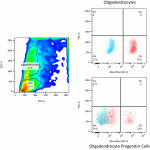
Differentiated rat cortical stem cells were fixed and permea... 
IHC staining using purified anti-Oligodendrocyte Marker O1 (... 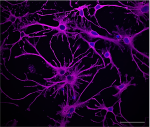
Rat cortical stem cells fixed with 4% paraformaldehyde for 1... -
Alexa Fluor® 488 anti-Oligodendrocyte Marker O1
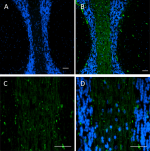
Formalin-fixed paraffin-embedded human cerebellum tissue was... 
Differentiated rat cortical stem cells were fixed and permea... 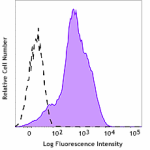
Differentiated rat cortical stem cells were fixed and permea... -
Alexa Fluor® 594 anti-Oligodendrocyte Marker O1
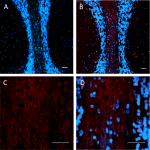
Formalin-fixed paraffin-embedded human cerebellum tissue was... 
Differentiated rat cortical stem cells were fixed and permea... -
Alexa Fluor® 647 anti-Oligodendrocyte Marker O1
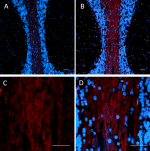
Formalin-fixed paraffin-embedded human cerebellum tissue was... 
Differentiated rat cortical stem cells were fixed and permea... 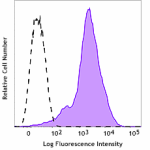
Differentiated rat cortical stem cells were fixed and permea...







Follow Us